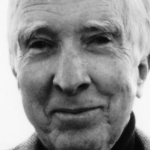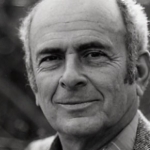What can you say about Pennsylvania
in regard to New England except that
it is slightly less cold, and less rocky,
or rather that the rocks are different?
Redder, and gritty, and piled up here and there,
whether as glacial moraine or collapsed springhouse
is not easy to tell, so quickly
are human efforts bundled back into nature.
In fall, the trees turn yellower—
hard maple, hickory, and oak
give way to tulip poplar, black walnut,
and locust. The woods are overgrown
with wild-grape vines, and with greenbrier
spreading its low net of anxious small claws.
In warm November, the mulching forest floor
smells like a rotting animal.
A genial pulpiness, in short: the sky
is soft with haze and paper-gray
even as the sun shines, and the rain
falls soft on the shoulders of farmers
while the children keep on playing,
their heads of hair beaded like spider webs.
A deep-dyed blur softens the bleak cities
whose people palaver in prolonged vowels.
There is a secret here, some death-defying joke
the eyes, the knuckles, the bellies imply—
a suet of consolation fetched straight
from the slaughterhouse and hung out
for chickadees to peck in the lee of the spruce,
where the husks of sunflower seeds
and the peace-signs of bird feet crowd
the snow that barely masks the still-green grass.
I knew that secret once, and have forgotten.
The death-defying secret—it rises
toward me like a dog’s gaze, loving
but bewildered. When winter sits cold and black
on Boston’s granite hills, in Philly,
slumped between its two polluted rivers,
warmth’s shadow leans close to the wall
and gets the cement to deliver a kiss.



















Comment form: